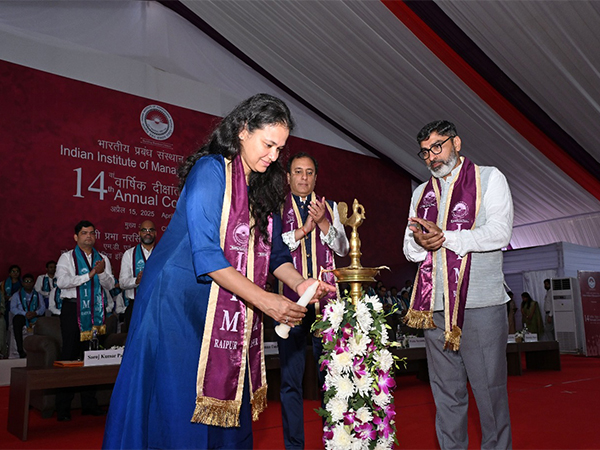Northeast Delhi violence: Former councillor granted second bail in riots case
Mar 15, 2022

New Delhi [India], March 15 : A Delhi Court on Monday granted bail to ex Municipal Councillor Ishrat Jahan who is an accused in Northeast Delhi riots larger conspiracy case.
She was booked under the anti-terror law Unlawful Activities (Prevention) Act (UAPA) by the Delhi Police Special cell in connection with the conspiracy of Delhi riots 2020. She was granted bail in 2021 in another FIR registered in 2020.
Additional Sessions Judge Amitabh Rawat observed in the order, "The entire conspiracy as spelt out in the charge sheet, as far as it ascribes the role of accused Ishrat Jahan, who is a woman, for the limited purpose of bail application on a prima facie consideration, persuades this court to allow the present application for bail despite the embargoes contained in Cr. P. C. And UAPA."
The Court allowed the bail application of Ishrat Jahan on her furnishing of a personal bond of Rs. 50,000/- with two sureties in the like amount subject to certain conditions including that she shall neither leave the jurisdiction of NCT of Delhi without prior permission of the court nor shall she indulge in any kind of criminal activity, cooperate in the investigation and not indulge in any activity influencing the investigation.
Advocate Pradeep Teotia, counsel for the accused had argued that Jahan is an advocate and had been a Municipal Councilor from Ghondli, Delhi. She has been falsely implicated in this case out of political vendetta. She was earlier arrested in FIR No. 44/20 lodged at Police Station Jagatpuri in which bail was granted on March 21, 2021, but she was arrested on the same day in the present matter, he argued.
The Counsel for the accused further argued that section 43D UAPA only puts restrictions but is not an absolute bar to the grant to the bail. There is no cogent material in the entire charge sheet to prima facie disclose for the commission of a terrorist act or conspiracy or an act preparatory to the commission of a terrorist act. There has been no recovery of any ammunition or firearm from the accused or any reading material propagating violence, stated the Counsel.
It was also argued that the accused is not a member of any banned group or organisation or any WhatsApp group. She is not involved in any terrorist act or armed rebellion. There is no video footage or electronic data or recoveries to show the alleged offence against the applicant. She had not led any mob violence nor was she part of any meeting called by accused Amanullah to form the JACT group. The prosecution has failed to show any incriminatory message between the accused and accused Amanullah or Devangana Kalita and the only chat with accused Tasleem which is not incriminatory.
It was argued in rebuttal that the prosecution had laid great emphasis on 1,097 calls and messages exchanged between Ishrat and Amanullah. However, on perusal of the charge sheet, only 132 calls (outgoing and incoming) have been brought on record. Out of these 29 calls are zero second calls. Moreover, the prosecution has failed to show any incriminating messages etc. exchanged between Ishrat and Amanullah in order to establish conspiracy regarding riots among them.
On the other hand Special Public Prosecutor (SPP) Amit Prasad had argued that in the present case, there are two embargoes on the court while considering the application for bail under Section 437 Cr.P.C. The first limitation is Section 437 Cr. P.C. which circumscribes the jurisdiction of this court in relation to offences carrying punishment upto life imprisonment. The second limitation is the restriction contained in the proviso to Section 43D (5) UAPA. The court is required to record a finding on the basis of broad probabilities after analyzing the entire charge sheet and accompanying documents. A mini-trial cannot be done by dissection of the evidence.
It was further argued opposing the bail that individual role is not to be considered in a case of conspiracy where there are multiple accused persons who have done their individual bits in formulating and carrying out the conspiracy. It is not necessary that an individual accused must take part in the commission of each and every one of the conspiratorial acts. Conspiracy is mostly proved by circumstantial evidence. The riots that occurred in Northeast Delhi were not spontaneous outbursts of violence rather it was a criminal act of causing planned violence under a deep-rooted conspiracy.

















